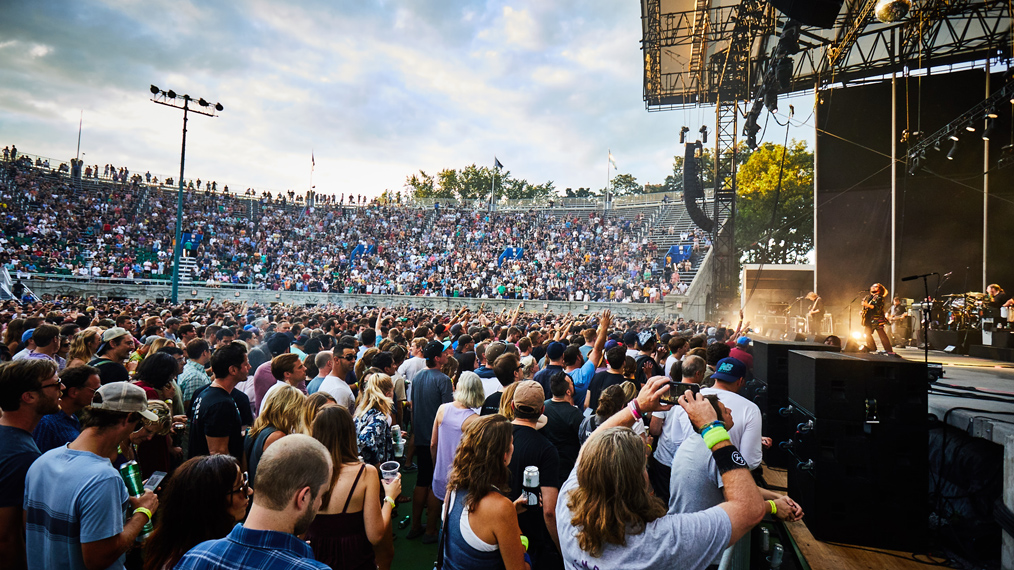Queens natives LL Cool J and Run-DMC, considered hip-hop royalty, found themselves at the center of a noise-related controversy in the exclusive Forest Hills Gardens enclave in August 2022. The legendary rappers headlined the Rock the Bells Festival at Forest Hills Stadium, resulting in a surge of 55 noise complaints to New York City’s 311 system within the ZIP code encompassing the venue. The concert marked a significant escalation in the ongoing dispute between the stadium, local residents, and the fans.

Rising Noise Complaints Linked to Performances
Gothamist analyzed data by matching each Forest Hills Stadium concert date since 2019 with the number of 311 noise complaints related to the venue and its vicinity. The results revealed a significant increase in noise complaints over the past year, particularly during consecutive performances and festivals. In some instances, the second or third day of such events experienced heightened call volumes. A notable example was the 2022 Rock the Bells Festival, which has since been surpassed in noise complaints by other performance dates.
On October 1, 2022, a concert featuring the Yeah Yeah Yeahs and Japanese Breakfast generated the highest number of noise complaints, with 62 registered in the Forest Hills ZIP code. Furthermore, an August 27, 2022 performance featuring electronic pop groups ODESZA and Sylvan Esso resulted in 58 noise complaints. On the second day of the Head in the Clouds Festival in May 2023, featuring Asian rappers and pop stars, 56 noise complaints were recorded. The data shows a trend of increasing noise complaints coinciding with performances at the stadium.
Balancing Economic Benefits and Noise Concerns
City data indicated that daily noise complaints in Forest Hills have nearly doubled over the past two years compared to 2019 before the COVID-19 pandemic halted events. This upward trend reflects a citywide pattern. Attorney Christopher Rizzo, representing the Forest Hills Gardens Corporation, which comprises homeowners in the enclave, has been involved in a lawsuit to shut down the concerts. He argues that the venue violates city regulations and generates excessive noise, impacting the privacy and safety of the community.
On the other hand, Mike Luba, head of the stadium’s concert promoter, Tiebreaker Productions, dismisses these claims, attributing them to “cranky neighbors.” He asserts that the company has invested over $1 million to mitigate sound and ensure concerts conclude by a 10 p.m. curfew. While some residents have voiced their concerns at community board meetings, the board itself supports the stadium’s contributions to the community, including holiday lights and donations to local schools.

Local Business Owners Also Speak Up
Local business owners echo this sentiment, citing the economic benefits the stadium brings to the area. They emphasize that the influx of concertgoers boosts sales for restaurants, bars, and shops, ultimately sustaining small businesses. The business community contends that without the stadium, their long-term viability could be at risk.
While noise concerns persist, the clash between community members and the economic interests associated with the stadium remains a complex issue that underscores the challenges of balancing neighborhood harmony with the benefits of cultural events.